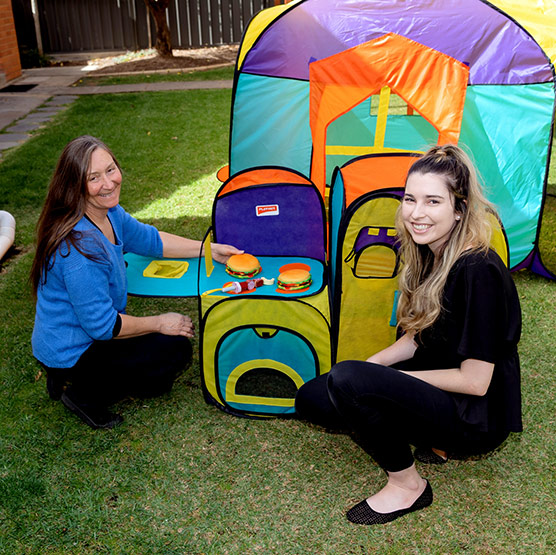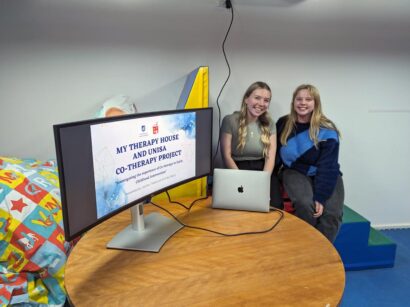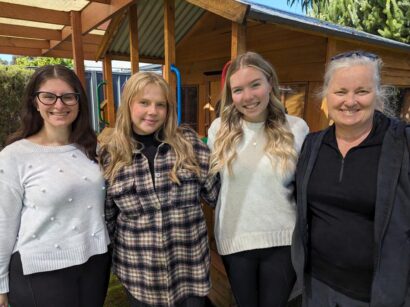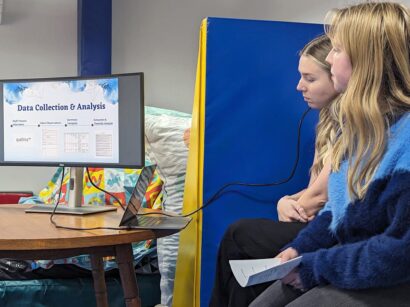A profile refers to the way someone learns, communicates and experiences the world. For example, some people learn best when they move, others need to be very still and quiet. Some people communicate by using alot of gestures, while others use very few gestures.
At My Therapy House®, experience shows us that co-therapy is a very effective way of working with children who have complex profiles, and for families who have a lot of questions and worries about their child’s development and how they can best support them at home and in the community, while supporting the child to learn different skills through the experiences they are having.
Sometimes it is difficult for one therapist to work with the child AND discuss concerns with the parent at the same time, and this is where two therapists working together during the session is of most benefit to the child and the family.

What is co-therapy?
Co-therapy is when two therapists work with the child and the parent at the same time. This could be an Occupational Therapist and a Speech Pathologist together, or the Development Through Play therapist working with either a Speech Pathologist or Occupational Therapist.
Co-therapy also provides families with the opportunity to highlight two specialised areas of therapy and focus on them both in one session.
Co-therapy does not mean one therapist observes and does nothing while the other therapist works with the child and parent. It means both therapists are working throughout the session to support the child and parent. One therapist may sit back and watch to see what is happening in the interaction or play, to then join by supporting the parent or the child, or may talk with the parent about their concerns, or what their child is doing in the moment.
What are the benefits of co-therapy?
When families first come to My Therapy House® they have a lot of questions, while their child wants to do a lot of exploring and investigation. During these times it is beneficial for one therapist to be coaching and speaking to the parent, while the other therapist is supporting the child so that the child feels like they are being seen and heard and the parent has time and opportunity to ask questions.
As an example, a child may find it challenging to regulate their bodies and need to move everywhere. In this situation, the Occupational Therapist might help the child learn how to regulate themselves so they can concentrate better while the Development Through Play Therapist helps the child with their play ideas or the Speech Pathologist works with the child and parent on communication.
The therapists always support the parent to join in the session or learn about their child’s and their own profile in the session while keeping the child safe.
If we start with co-therapy does this mean we have co-therapy all the time?
Co-therapy is used only when needed with the child and family. When therapists and the family feel the child is able to regulate by themselves and the parent has a good understanding of their child and how to best support them, then we may move onto single therapist sessions or even to a dyad where the child is supported by one therapist with another child who is supported by another therapist.
What is the cost?
Co-Therapy Research Project
We were privileged to have Jacinta Trebilcock and Emily Bayly, Final Year Speech Pathology Students from UniSA carry out their research project here at My Therapy House in August 2023 called “Investigating the Experience of Co-therapy in Early Childhood Intervention”.
The findings about co-therapy were overwhelmingly positive for all children, families and staff. There is not much research in this area and hopefully it will inspire more students and researchers to explore the practice of co-therapy in early intervention further.
We have attached the student posters, as well as the parent handout. The evidence is now showing why co-therapy works with children with complex profiles!



